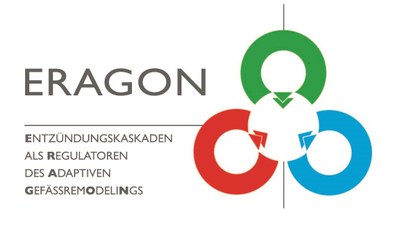Main Content
Clinical and Translational Research
In clinical studies, we aim for new biomarkers and therapeutical strategies for lung diseases like asthma, COPD, and pneumonia. Our physicians take part in the pulmonology service of the university medical center, and we take part in the Clinician Scientist training program.
Inflammation cascades as Regulators of adaptive vascular Remodeling (ERAGON)
Research Training Group, funded by the von-Behring-Röntgen-Stiftung, Marburg
TP 9: Epigenetic Mechanisms of vascular Remodeling in COPD

Vascular injury of any kind leads to unphysiological vascular remodeling with destruction of the vascular structure, the maladaptive vascular remodeling. This is known not only for chronic changes in atherosclerosis or arterial and pulmonary hypertension, but also after acute injury, for example due to balloon dilation. All these maladaptive regeneration processes have in common that they are driven and maintained by mechanisms of innate and acquired immunity and downstream inflammatory signaling cascades (NF-κB, MAP kinase, etc.). The central theme of the Research Training Group is the consideration of the pathological remodeling processes of the vascular wall. Specific pathophysiological spectra are to be displayed and analyzed along the anatomical structures from luminal to abluminal.
Investigation of the impact of antimicrobial insect peptides on Streptococcus pneumoniae
Principal investigator: Dr. Wilhelm Bertrams
The development of antimicrobial resistance to existing antibiotics is an increasing global problem. High resistance rates are observed in many countries among others with Streptococcus pneumoniae (S. pneumoniae), an important pathogenic agent of pneumonia, sepsis, meningitis and otitis media. Antimicrobial peptides (AMP) represent an alternative to the previously used antibiotics. Since the effect is based on a biophysical principle (interaction of an amphipathic molecule with the anisotropic membrane layer), the AMP are active against a broad spectrum of bacteria. Several research groups have described in recent years that insects produce natural substances that have antimicrobial effects and can serve as the basis for various ointments and new antibiotics.
Funded by the Stiftung P.E. Kempkes.